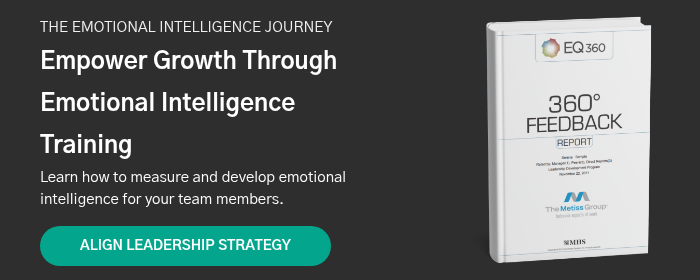Can Leaders Change Their Personality? The Real Value of Self-Awareness
July 25th, 2025
3 min read
By John Gave

In Me, But Better: The Science and Promise of Personality Change, journalist Olga Khazan explores a bold question: Can people intentionally change their personality? Drawing on interviews with psychologists, research studies, and her own experience, Khazan investigates whether adults can reshape who they are at a fundamental level. Her exploration is grounded in science, not self-help optimism.
To track her personal progress, Khazan uses the Big Five personality framework. This model measures five dimensions of personality: openness, conscientiousness, extraversion, agreeableness, and neuroticism (commonly known as OCEAN). Khazan begins by identifying her scores across each trait, then embarks on a structured plan to alter them. Her goal is to become more extroverted, less anxious, and more socially flexible. The outcome is mixed. While some behaviors become easier with repetition, the process is slow and taxing. Change, she finds, is possible in small increments but not without significant effort.
Her journey aligns with what researchers have long known. Personality traits are relatively stable across time. While they can shift in response to life experiences or sustained effort, they do not change easily or dramatically. The process requires intention, repetition, and a willingness to face emotional discomfort. Even then, outcomes vary and are often temporary unless reinforced by ongoing support and motivation.
Leaders are often told to "just be themselves," but what happens when the demands of their role push them to behave in ways that conflict with their natural personality? A reserved executive may be expected to project charisma, or a big-picture thinker may be forced into meticulous operational planning. While short-term adaptation is possible, prolonged misalignment between role expectations and innate temperament frequently leads to exhaustion, disengagement, and burnout.
In this article, you will learn:
- What Me, But Better Teaches About the Science of Personality Change
- Why Extended Personality Adaptation Often Leads to Stress and Burnout
- How Self-Awareness Improves Leadership Performance
- Why Emotional Intelligence Begins with Understanding Yourself
What Me, But Better Teaches About the Science of Personality Change
Khazan’s book combines scientific rigor with personal experimentation. Her efforts to change her personality are deliberate. She practices new behaviors, seeks coaching, and tracks her emotional and behavioral patterns over time.
Some results are encouraging. With effort, she becomes more comfortable in social settings and less reactive in stressful situations. But the process is uneven and often exhausting. Change happens, but slowly and with limits.
Her experience reflects broader research findings. Personality is not set in stone, but it is difficult to alter in lasting ways. Traits like extraversion or neuroticism are influenced by underlying biology, long-term habits, and environmental cues. For leaders, this means large-scale personality change is unlikely to occur simply through willpower or feedback.

Why Extended Personality Adaptation Often Leads to Stress and Burnout
Organizations frequently reward specific personality traits. Extraversion, low neuroticism, and high conscientiousness are often associated with executive presence and leadership effectiveness. Leaders who do not naturally possess these traits may feel pressured to adopt them through behavior alone. While short-term adaptation is manageable, maintaining it long-term can create internal tension.
A leader who regularly overrides their personality will likely feel drained. This is especially true when the expectations of the role are misaligned with their temperament. For example, a detail-averse leader who is placed in a compliance-heavy role may become anxious or disengaged, even if they perform adequately.
Imagine the stress of an introvert expected to make cold calls in sales everyday, all day.The psychological cost of sustained dissonance between personality and role can outweigh the benefits of adaptation.

How Self-Awareness Improves Leadership Performance
Rather than focusing on personality change, leaders are better served by developing self-awareness. Understanding one’s personality traits allows for more strategic adaptation. Leaders can choose when to stretch themselves and when to delegate. They can anticipate how they will react under pressure and plan accordingly.
Self-aware leaders are also more resilient. They know their triggers and can regulate their responses. They understand how they impact others and can adjust without losing authenticity. This type of insight is foundational to leadership growth and is often the focus of high-quality leadership development programs and executive leadership coaching.
Why Emotional Intelligence Begins with Understanding Yourself
Emotional intelligence in the workplace begins with self-knowledge. Leaders who understand their emotional patterns, tendencies, and stress responses are better equipped to lead others. Without this understanding, even the most skilled communicators can become unpredictable or disconnected under pressure.
Personality assessments, structured coaching, and reflective practices help leaders identify who they are and how they operate. From there, they can refine their leadership style, align with the right roles, and lead teams with more consistency. The goal is not to become someone else. The goal is to become more intentional and effective with who you already are.
The science behind personality change suggests while some movement is possible, dramatic transformation is unlikely. Sustained change requires continuous effort, and the returns may be limited. The more practical and sustainable approach is to develop a deep understanding of your own personality. This allows for thoughtful adaptation and more authentic leadership.
Self-awareness is not a soft trait. It is a core leadership skill that drives performance, emotional intelligence, and strategic decision-making. Leaders who know themselves are better equipped to handle complexity, maintain resilience, and build trust. Growth does not come from becoming someone different. It comes from learning how to lead as the best version of yourself.
Ready to lead with greater empathy and impact? Start The Emotional Intelligence Journey™ today and uncover how your self-awareness, communication, and relational insight shape your leadership effectiveness.
